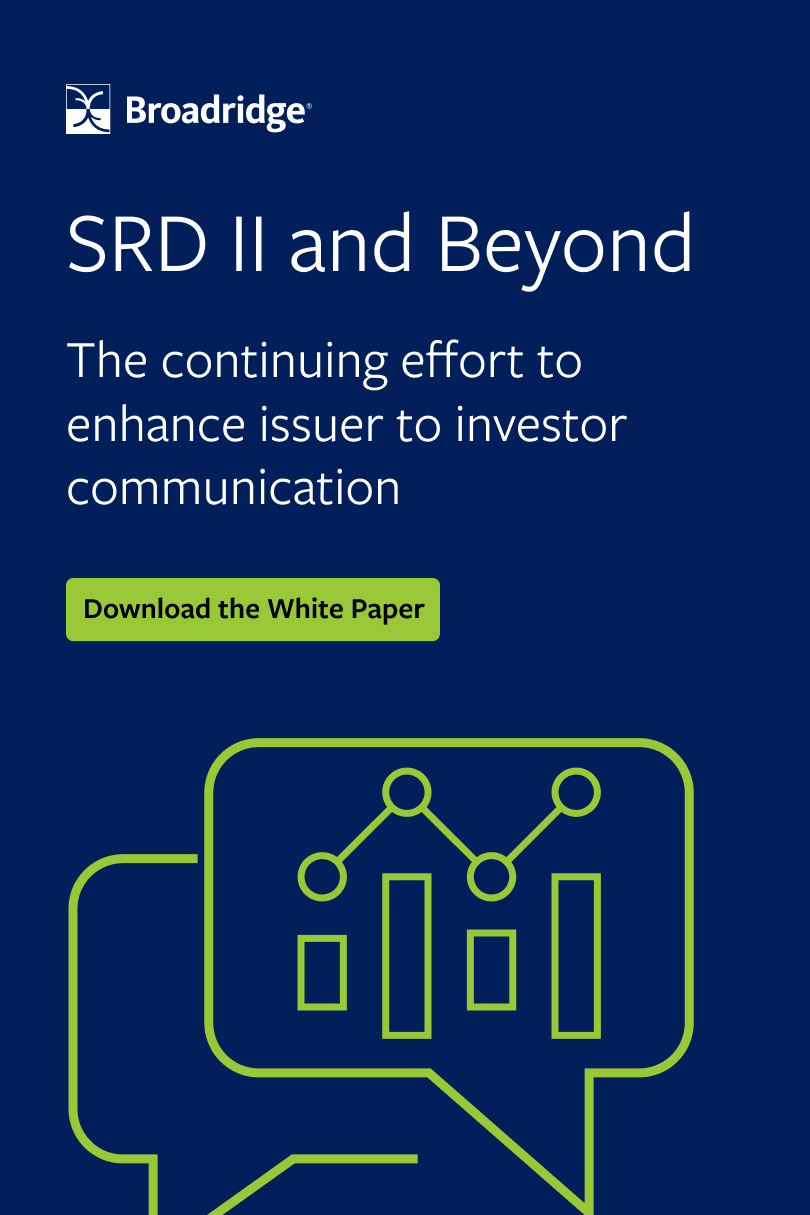As financial firms face a deluge of raw information on corporate actions, the risks and costs associated with acquiring and managing this data are higher than ever before. An investment decision, based on poor quality data—whether that relates to accuracy or timeliness, or both—can have enormous ramifications, with potential exposures running into the millions of dollars. In a world of big data, bad data is becoming more commonplace. How can firms avoid the pitfalls of bad corporate actions data?
Corporate actions data is growing at an average rate of 12 percent a year. However, as data volumes increase, data quality is often sacrificed. In fact, a member study by Cutter Associates found that data quality is one of the top three corporate actions challenges facing firms.
Many firms source corporate actions data from a range of external providers, which can lead to conflicting information or error-prone manual processing. Issuers and issuer agents continue to announce corporate actions via multiple mediums, such as the prospectus, newswires and local exchanges. None of these announcements are in a format that can be consumed by an application and therefore leave the announcement open to interpretation by the local exchanges, central securities depositories (CSDs), data providers and custodians. This creates interpretational risk and errors when the data from different sources does not match.
A single inaccurate data element from just one source can pollute the entire downstream process by circulating through multiple channels and multiple vendors, possibly leading to many negative ramifications. We are only too aware of the challenges ourselves. We currently have approximately 100 corporate actions clients with a combined securities of interest (SOI) of over three million securities and 1.8 million unique securities. This sees us flushing out hundreds of errors per month.
The impact of bad data on corporate actions is wide ranging and can be serious. Poor data quality can affect productivity, security and the process of making cost-effective and correctly informed decisions. A recent example of where poor corporate actions data had a significant impact is Verizon. In January 2017, Verizon announced a five-day exchange and tender offer. Offers were complex, requiring time for investors to understand and determine whether to elect. If a client did not receive the press release, they were solely dependent on the bank, broker or vendor for notice.
With five-day tender offers, information usually arrives at the depository in paper or press release format and time is needed to digitise offer terms. Issuers typically do not mail materials to investors nor does the short deadline allow for mailing time. Most firms are challenged to process instructions on or after normal instruction deadlines and many intermediaries impose earlier deadlines. In addition to these challenges, vendors are usually late in publishing the information and, in many cases; it is incorrect in the first instance. As a result, by the time corrections are sent and processed, clients may end up with very little time. These extremely short deadlines can lead to data quality issues, which can in turn lead to client discontent.
Another example from November 2017 is the EP Energy Exchange Offer. The event was created by the vendor two days after the announcement and many options of the offer were created incorrectly. There was also a lack of distinction between the different options offered by the issuer.
Customers had to perform extra quality checks and review corrections despite paying for the information with the expectation that it would be correct. If the client were to have used this information as provided to them, they would not have been able to understand the differences and make an intelligent decision.
So, how can these challenges be mitigated?
Firms should start by managing data as an asset. Today, CIOs are not typically involved in overseeing new data deals, the onus is on cost when it comes to data acquisition, rather than quality. Once acquired, many firms place the task of organising and managing corporate actions data squarely on the shoulders of the IT department, or try to makes sense of it with spreadsheets and antiquated database tools.
These approaches need to change. It’s important that a specialist is involved in validating corporate actions data as they are the ones who truly understand the relevance of the information they’re looking at. A more forensic analysis of data quality at the outset of any new data acquisition relationships is also critical. Firms should conduct a data mapping exercise across their different data vendors to better understand the landscape. In particular, it’s important to appreciate vendors’ strengths and weaknesses across different asset classes and markets. An effective data control strategy must then permeate the entire data supply chain, which will involve integrating data content management into the overall corporate actions ecosystem.
Technology also has an important role to play. Systems should enable firms to make quick mapping changes and quality control checks. Solutions should also have the flexibility to scale and adapt based on the data volume, speed and variety, as well as providing a solid foundation for the introduction of new technologies. We are increasingly seeing the introduction of artificial intelligence to teach applications what to look for. For example, identifying and defining fields that need to be completed. Such an approach not only resolves errors based on defined rules, but also alerts the analysts at the beginning of the process, rather than at the end when it is costly to resolve.
Many companies are at the start of their journey towards better corporate actions data management. It’s a journey worth investing in as the benefits of high quality, multi-sourced data are manifold—from cost savings and reduced risk to greater productivity and better decision-making. The Verizon event is unlikely to be the last challenging event from a corporate actions data perspective, but if companies can move towards managing data as an asset, they will certainly reduce the likelihood of getting caught out.



